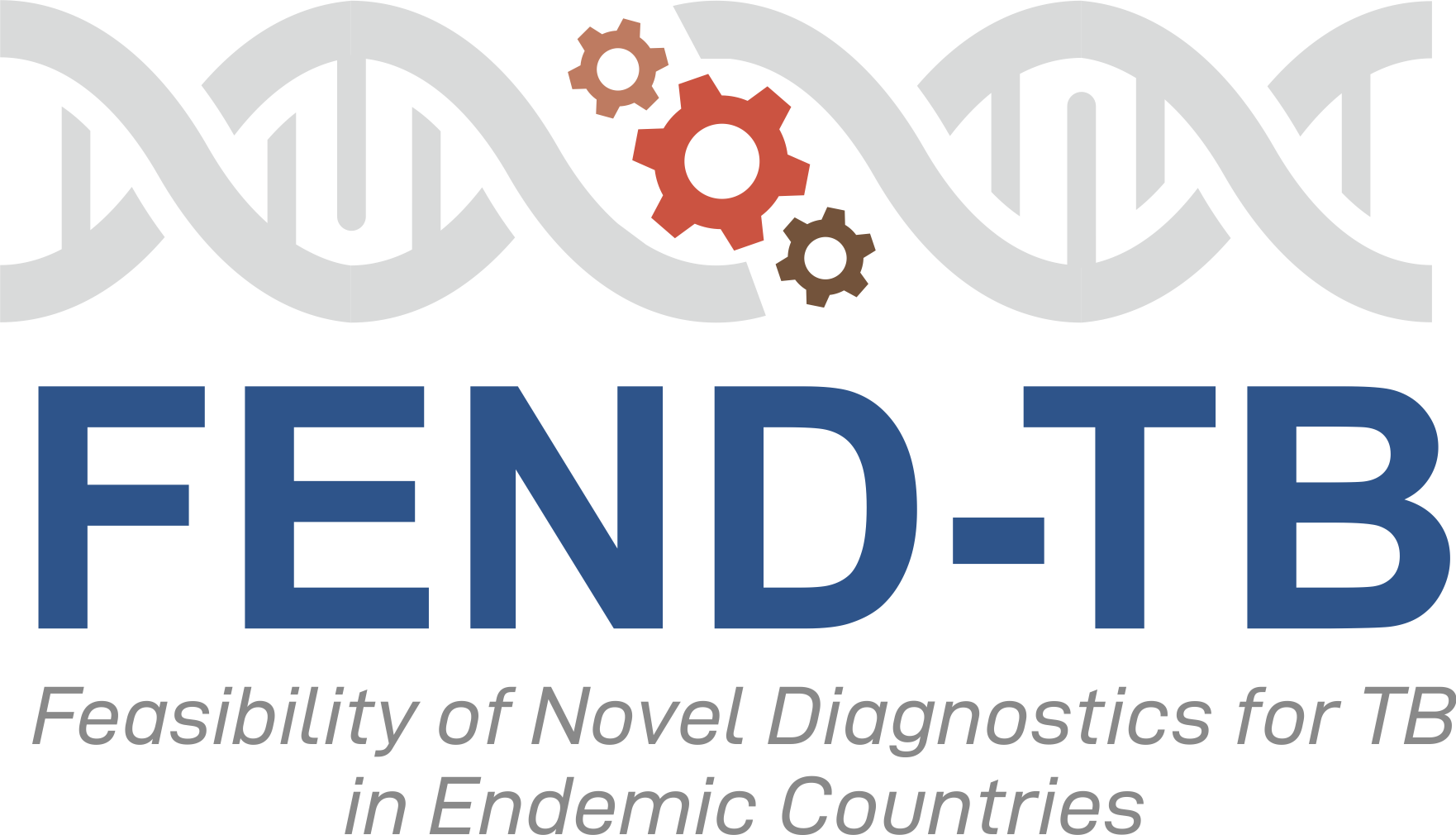About

Tuberculosis (TB) is a curable and preventable disease, however, it is one of the most significant infectious causes of mortality and morbidity worldwide and is the number one cause of death among those infected with HIV. TB occurs across the world. In 2019, the largest number of new TB cases occurred in the WHO South-East Asian region, with 44% of new cases, followed by the WHO African region, with 25% of new cases and the WHO Western Pacific with 18%. The primary purpose of the FEND for TB Consortium is to evaluate early stage diagnostics and novel diagnostic strategies for tuberculosis in the context of existing clinical algorithms in TB endemic countries.
Lack of diagnosis and delayed diagnosis remain critical obstacles to controlling tuberculosis and improving individual and public health. An estimated one-third of all tuberculosis cases are missed.. Undetected TB and late detection of TB increases the risk of transmitting the disease to others, poor health outcomes, and distress/economic hardship due to illness. While there have been important advances in tuberculosis diagnostics over the last decade, specifically in sputum, there are significant limitations. These include poor feasibility in people who cannot expectorate, irrelevance in those who only have extra-pulmonary tuberculosis (TB in sites other than the lungs), irrelevance in those who have latent infection, and biohazards associated with specimen collection. Much work remains to develop the diagnostics needed for early detection of exposure and drug resistance.

Our Mission
To support the evaluation of early-stage TB diagnostics & novel diagnostic strategies in the context of existing clinical algorithms in TB endemic countries.
FEND for TB will perform proof-of-principle studies of novel diagnostics & strategies and provide feedback to diagnostic developers on the performance of the technologies and their most effective use in endemic settings.

Leadership
The FEND-TB consortium is led by a dynamic team of expert investigators with decades of experience in the conduct of multicenter, multidisciplinary international research programs and diagnostic evaluation programs on TB.
Dr. Ellner has led multidisciplinary observational cohort programs at international sites comparable in scope to FEND-TB including currently TBRU, RePORT India and RePORT South Africa. Dr. Alland is internationally recognized for his contributions to TB diagnostic research and understanding of mechanisms of drug resistance. Dr. Dorman has been PI on sentinel studies of TB diagnostics including currently a large RO1 for further study of Xpert Ultra as well as clinical trials of new treatments including a multicenter trial of rifapentine for treatment shortening. Dr. Ellner was PI, Dr. Dorman Clinical Director and Dr. Alland Scientific Director of the NIAID TB-Clinical Diagnostics Research Consortium (TB-CDRC) from 2009-2016. Dr. Ruhwald joins this leadership team as Head of the TB Programme at FIND, bringing a wealth of experience with evaluating promising TB diagnostics and working with leading diagnostics manufacturers.
PI
Susan Dorman
Co-PI & Clinical Director
David Alland
Co-PI & Scientific Director
Morten Ruhwald
Co-PI & FIND PI

Jerrold Ellner, MD
Principal Investigator

Susan Dorman, MD
Co-PI & Clinical Director

David Alland, MD
Co-PI & Scientific Director

Morten Ruhwald, MD
Co-PI & FIND PI
The program is enhanced by a small and responsive Leadership Committee and an Executive Committee with representation across the consortium. Several cores and committees represent the service lines of the FEND-TB program. The FEND-TB leadership is comprised of leading innovators in their respective TB fields. Many have collaborated together for over a decade, discovering TB biomarkers, developing infectious disease diagnostics, modeling diagnostic impact; and most importantly, leading innovative high-quality clinical studies.
Operations
Rutgers University, Center for Emerging Pathogens hosts the Data and Operations Management Center (DOMC), dedicated to the operations and conduct of sponsored clinical studies. The DOMC currently coordinates and manages 12 NIH-sponsored UO1 and RO1 projects, involving human prospective clinical studies in eleven (11) TB-endemic countries, involving adult, pediatric, MDR-TB in biomarker discovery, diagnostic testing evaluation and epidemiology/genomics.
The DOMC has extensive experience as the Data, Administrative, Operations Management Center for TB CDRC (2009-2016), TB Research Unit (2014-2021), FEND-TB (2020-2025), TB-RePORT International Coordinating Center (2021-2028) and ICIDR programs in activities of biomarker discovery, POC TB diagnostics evaluation, including: design/development of case report forms, data entry/management; operational implementation; quality assurance; statistical analysis; maintenance of study data, documentation and regulatory compliance. Staff at the DOMC have expertise in key areas of data management including clinical coordination, biostatistical analysis, laboratory QA/QC coordination, data capture/data management, regulatory coordination and biorepository management.
Data and Operations Management Center
Database Management
Biorepository Management
Clinical Data Collection
Database Management
The Data and Operations Management Center (DOMC) exports REDCap collected data into interim Access databases for review, query and resolution per SOP and GCP guidelines.
Data interns and study coordinators work with site teams to establish valid and complete data for statistical analyses.
Biorepository Management
DOMC utilizes FreezerPro Cloud, a web-based samples management solution (Chelmsford, MA) and sample tracking solution, to manage biospecimens across institutions. Creation of virtual freezers assists with management and identifies source vials by “pull lists” when needed for analysis or to digitally accompany shipments to other laboratories. FEND-TB sites adhere to GCP and GLP in the secure storage of participant samples.
Clinical Data Collection
DOMC utilize HIPAA-compliant REDCap (Research Electronic Data Capture, Vanderbilt University) tools to provide a secure, web-based application allowing for
- Validated data entry
- Audit trails of all data entry, manipulation, and export
- Customizable reports and exports to all common statistical packages
- Tools for seamless data import
- Customizable user access permissions. REDCap allows for direct on- or off-line electronic data capture.
Data Visualization
Data Dashboards
DOMC utilizes Tableau Software to create dashboards composed of dynamic visuals communicating clinical data and summarizing biorepository inventory.
FEND-TB Status
Benefits
- Represent and analyze collected data
- Evaluate clinical and biorepository needs
- Curate a wide variety of graphs for easy interpretation
- Easily share content with many via servers
FEND-Sex and HIV Status
FEND-Cumulative Enrollment







